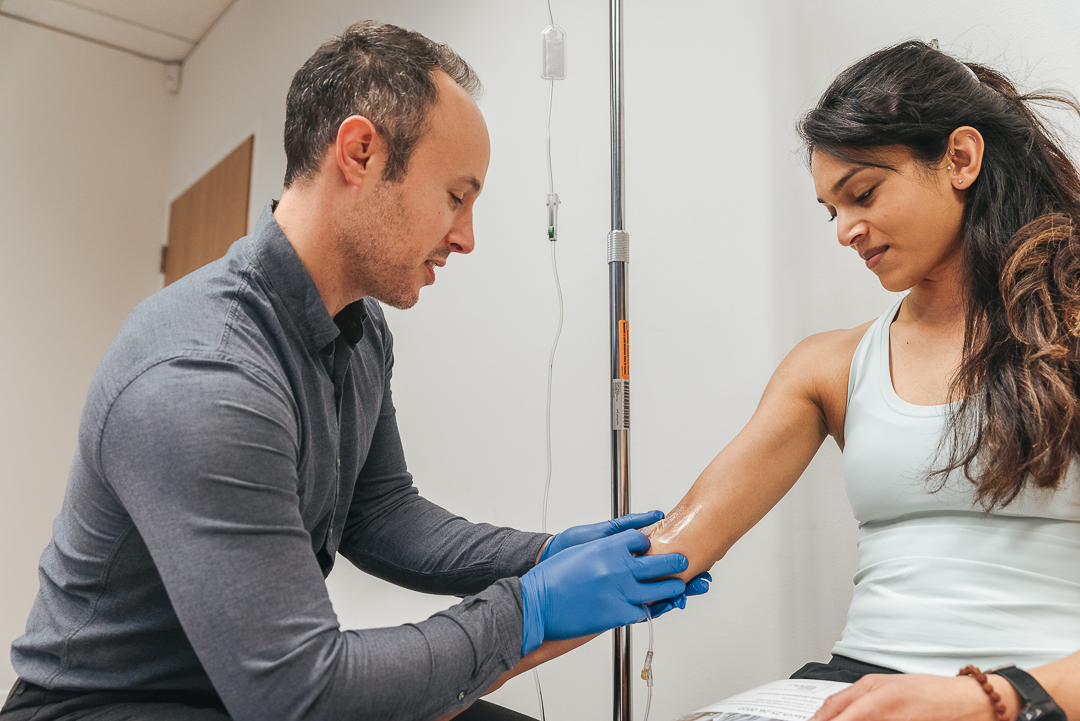When people think of vitamin C, the first thing that usually comes to mind is its ability to ward off the common cold. But did you know that vitamin C is also an incredibly powerful nutrient for recovery? That’s right! Vitamin C plays a crucial role in everything from wound healing to muscle repair, making it an essential component of any recovery plan. In this article, we’ll dive deeper into the benefits of vitamin C for recovery and explore some of the best sources of this vital nutrient.
Immune System Boost
Vitamin C plays an important role in supporting our immune system by increasing the production of white blood cells. This means that vitamin C can help to keep us healthy when we’re feeling under the weather. But did you know that vitamin C is also important for healing injuries? When the body is fighting off an illness or recovering from an injury, it needs more vitamin C than usual.
Check out the benefits of intravenous vitamin C therapy HERE

Wound Healing
If you have a cut or scrape, vitamin C can help to speed up the healing process. This is because it is essential for the production of collagen, which is a vital protein that helps to build connective tissue. Collagen plays a crucial role in the healing of wounds, making vitamin C an important nutrient for anyone who wants to recover quickly from an injury. This is also why vitamin C is a common ingredient in skin creams and other beauty products.

Muscle Repair
Whether you’re an avid gym-goer or just enjoy staying active, you know how important it is to take care of your muscles. Vitamin C can help with muscle repair by reducing inflammation and oxidative stress. This means that vitamin C can help to protect your muscles from damage and can also speed up the recovery process if you experience any muscle soreness.
On a personal note, I have been using a whoop band for sleep and fitness tracking and was surprised to see a 6% increase in recovery correlated to my vitamin C consumption.
Check out this article on injury recovery HERE

Best Sources of Vitamin C
So, where can you find vitamin C? The best sources are fruits and vegetables like oranges, kiwis, broccoli, bell peppers, and kale. It’s important to note that vitamin C is a water-soluble vitamin, which means that your body can’t store it. This is why it’s important to consume vitamin C-rich foods regularly. Vitamin C supplementation may also be a viable option for those not getting suffcient amounts through diet alone.

How Much Vitamin C Do You Need?
The recommended daily intake of vitamin C is 75 mg for women and 90 mg for men. However, these guidelines can vary depending on your age and activity level. If you’re recovering from an injury, you may need to consume more vitamin C to support your body’s healing process. Talk to your healthcare provider to determine the right amount of vitamin C for your needs. If supplementing with vitamin C for immune health or recovery, I recommend taking 500mg-1000mg several times per day.
Conclusion:
Overall, vitamin C is an underrated nutrient for recovery that should not be overlooked. From boosting the immune system to aiding in muscle repair, vitamin C is an essential component of any recovery plan. Make sure to consume vitamin C-rich foods regularly, especially if you’re recovering from an illness or injury. Incorporating more vitamin C into your diet is an easy way to support your body’s healing process and ensure that you’re feeling your best.















